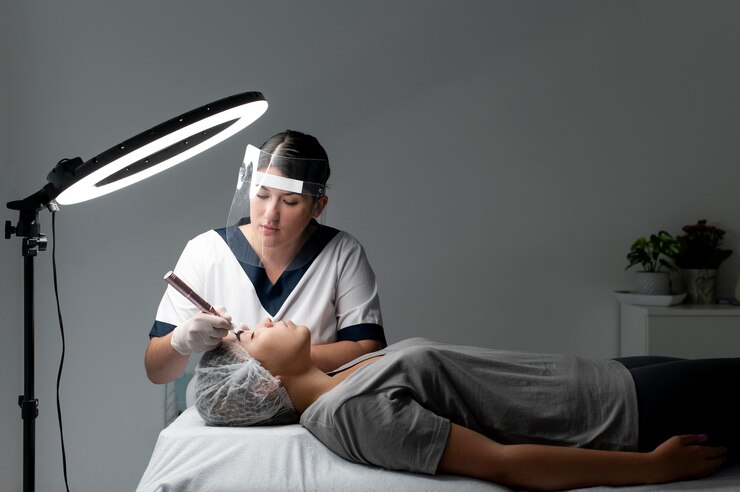Hair loss is a common issue affecting millions of people worldwide, leading to a growing demand for effective treatments. Among the many options available, laser hair therapy (LHT) stands out as a promising, non-invasive solution. Let's explore the future of laser hair therapy and how it might revolutionize hair restoration.
Understanding Laser Hair Therapy
Laser hair therapy, also known as low-level laser therapy (LLLT) or red light therapy, uses specific wavelengths of light to stimulate hair follicles and promote hair growth. This therapy is typically administered through handheld devices or in-office treatments.
How It Works:
Stimulation: The low-level lasers penetrate the scalp to stimulate blood flow and increase cellular activity in hair follicles.
Regeneration: Enhanced blood circulation delivers essential nutrients to the follicles, promoting hair growth and reducing hair thinning.
Strengthening: Regular treatment can strengthen hair strands, making them less prone to breakage.
The Future of Laser Hair Therapy
As technology advances, the future of laser hair therapy looks brighter than ever. Here are some exciting developments on the horizon:
Enhanced Device Technology
Current Devices: Today's LHT devices range from combs and helmets to caps, offering varying degrees of coverage and intensity.
Future Innovations: Future devices are expected to be more user-friendly, with improved design and functionality. Advanced features might include:
Customizable Settings: Personalized treatment plans tailored to individual hair loss patterns and needs.
Increased Efficiency: Higher power lasers for faster, more effective treatment sessions.
Smart Integration: Devices equipped with sensors to monitor scalp conditions and adjust settings for optimal results.
Combination Therapies
Why It Works: Combining LHT with other treatments can enhance its effectiveness, offering a more comprehensive approach to hair restoration.
Potential Combinations:
· Topical Treatments: Integrating LHT with minoxidil or other topical solutions to boost hair growth.
· Nutritional Supplements: Pairing LHT with vitamins and supplements that promote hair health.
· Microneedling: Combining LHT with microneedling to increase scalp absorption of treatments and stimulate follicle regeneration.
Clinical Advancements
· Current Research: Ongoing studies continue to validate the effectiveness of LHT, providing a deeper understanding of its mechanisms and benefits.
· Future Directions: Future research may focus on:
· Optimization: Determining the optimal wavelengths, durations, and frequencies for various hair loss conditions.
· New Applications: Exploring LHT's potential in treating other scalp and hair conditions, such as dandruff or scalp psoriasis.
· Long-Term Effects: Investigating the long-term benefits and safety of continuous LHT use.
Accessibility and Affordability
· Current Barriers: The cost of LHT devices and treatments can be prohibitive for some, limiting accessibility.
· Future Solutions: As technology advances and becomes more widespread, the cost of LHT is expected to decrease, making it more accessible to a broader audience. This could include:
· Affordable Devices: Production of cost-effective, high-quality LHT devices for home use.
· Insurance Coverage: Potential inclusion of LHT in insurance plans, recognizing its therapeutic benefits.
Integration with AI and Data Analysis
· Why It Helps: Artificial intelligence (AI) and data analysis can personalize and optimize LHT treatments for individuals.
Potential Benefits:
· Personalized Treatment Plans: AI algorithms can analyze hair growth patterns and treatment responses to tailor LHT sessions.
· Progress Tracking: Real-time data analysis to monitor progress and adjust treatments accordingly.
· Predictive Outcomes: Using historical data to predict treatment outcomes and enhance overall effectiveness.
Conclusion
The future of laser hair therapy is filled with potential, driven by technological advancements, clinical research, and a deeper understanding of hair loss. As LHT continues to evolve, it promises to become an even more effective and accessible solution for those seeking to restore their hair and confidence. By staying informed and embracing these innovations, individuals can look forward to a future where hair loss is no longer a source of distress but a condition that can be effectively managed and treated.
Hair Ensure in Vadodara offers PRP hair therapy to combat hair loss and boost hair density, ensuring a fuller, more vibrant look.





Comments